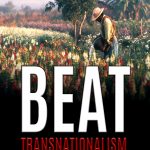“From a certain point onward there is no turning back. This is the point that must be reached.”
Kafka
The Six Gallery Reading
They came from the streets: from Fillmore and Broadway, from Columbus and East 7th, from Amsterdam and Morningside Drive. From Lower Burnside. Cross-country. Cross-town. There was talk of a renaissance.
On this first Friday of October, 1955, a waning gibbous moon was rising in the east. It had been hot that day, eighty-two and windless. The sun means nothing in San Francisco. It’s all about the wind. It would not be a cold night, the fog, mercifully, offshore, but it would be cool. It would be very cool. Continue Reading…














